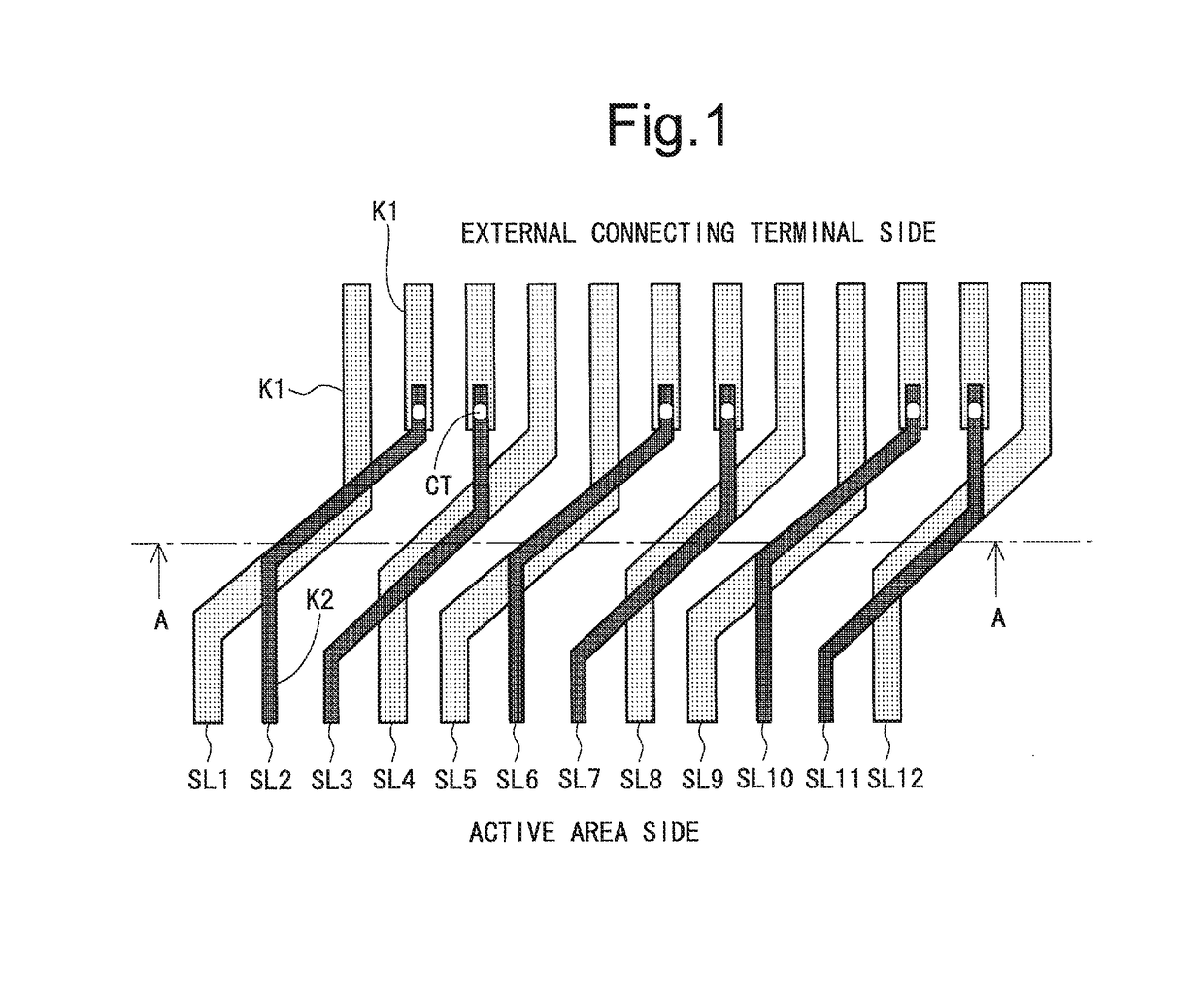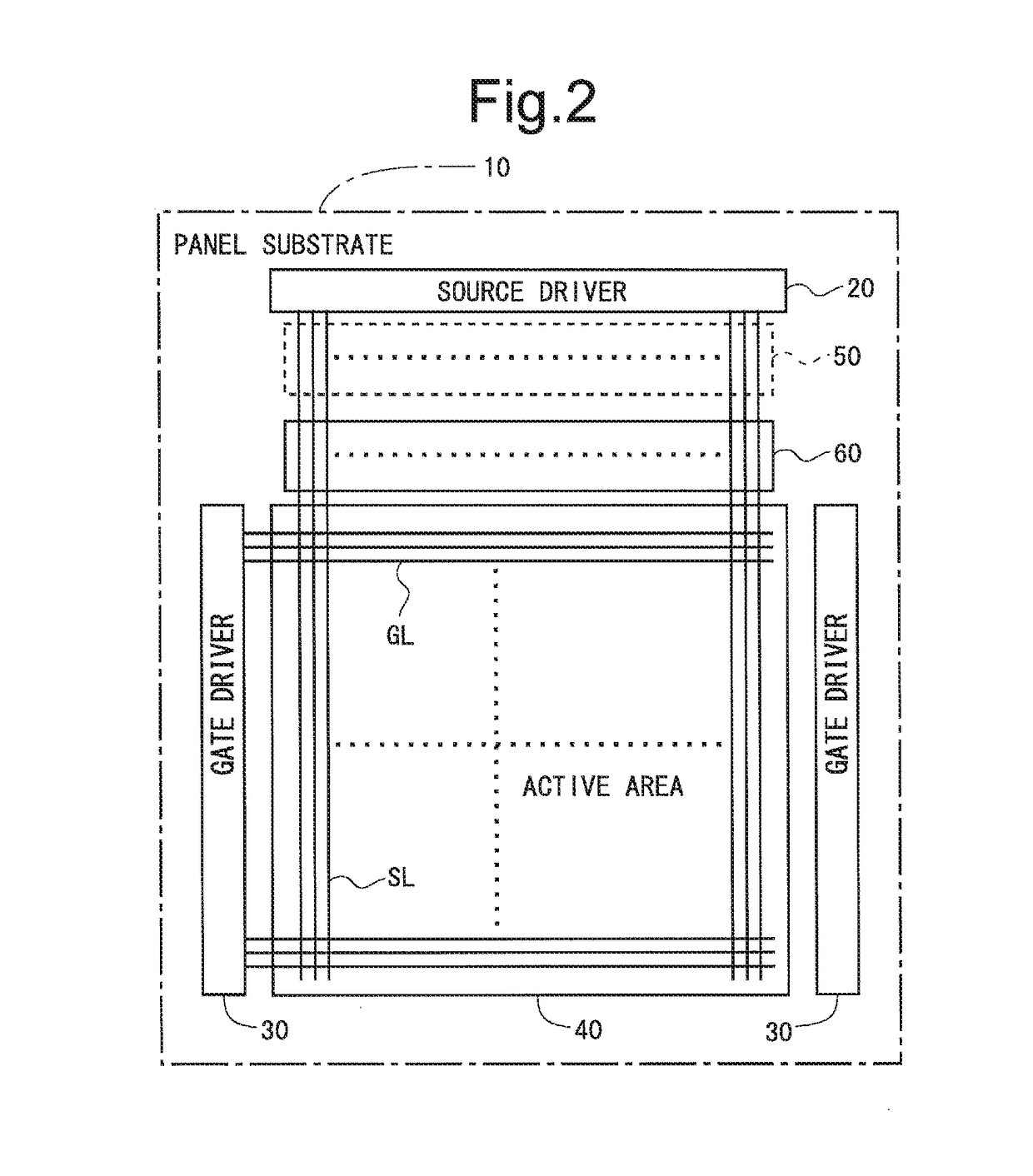Display device
a display device and display technology, applied in static indicating devices, instruments, non-linear optics, etc., can solve the problems of difficult downsizing of display devices, affecting the operation of display devices, so as to reduce the size of the picture frame, eliminate residual electric charges, and easily supply potentials of different magnitudes
- Summary
- Abstract
- Description
- Claims
- Application Information
AI Technical Summary
Benefits of technology
Problems solved by technology
Method used
Image
Examples
first embodiment
1. First Embodiment
[0073]
[0074]FIG. 2 is a block diagram illustrating an entire configuration of an active matrix-type liquid crystal display device according to a first embodiment of the present invention. As illustrated in FIG. 2, this liquid crystal display device is provided with a source driver 20, a gate driver 30, a testing circuit 60, and an active area (display region) 40. The active area 40, the gate driver 30, and the testing circuit 60 are provided on a panel substrate 10. Here, the panel substrate 10 in this embodiment is a glass substrate. The source driver 20 is mounted on the panel substrate 10 in a COG (Chip On Glass) manner, for example. Specifically, the source driver 20 in this embodiment is an IC chip. On the panel substrate 10, external connecting terminals for receiving video signals output from the source driver 20 which is an IC chip are provided. Here, a region indicated by a reference character 50 in FIG. 2 is a layered region (a region having a layered wi...
second embodiment
2. Second Embodiment
[0124]Next, a second embodiment of the present invention will be described.
[0125]
[0126]FIG. 19 is a block diagram illustrating an entire configuration of the active matrix-type liquid crystal display device according to a second embodiment of the present invention. The liquid crystal display device according to this embodiment is provided with a charge elimination circuit 70 in place of the testing circuit 60 in the first embodiment. The charge elimination circuit 70 is provided in a region between the active area 40 and the layered region 50. The charge elimination circuit 70 eliminates electric charges from the source bus lines SL and the pixel formation portions 4 when a device is turned off or terminated abnormally. The components other than the charge elimination circuit 70 are the same as those of the first embodiment, and therefore a description for these components will be omitted. Here, it is assumed that the wiring structure of the layered region 50 is ...
PUM
| Property | Measurement | Unit |
|---|---|---|
| size | aaaaa | aaaaa |
| insulating | aaaaa | aaaaa |
| structure | aaaaa | aaaaa |
Abstract
Description
Claims
Application Information
 Login to View More
Login to View More - R&D
- Intellectual Property
- Life Sciences
- Materials
- Tech Scout
- Unparalleled Data Quality
- Higher Quality Content
- 60% Fewer Hallucinations
Browse by: Latest US Patents, China's latest patents, Technical Efficacy Thesaurus, Application Domain, Technology Topic, Popular Technical Reports.
© 2025 PatSnap. All rights reserved.Legal|Privacy policy|Modern Slavery Act Transparency Statement|Sitemap|About US| Contact US: help@patsnap.com



